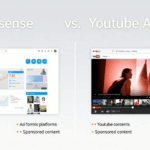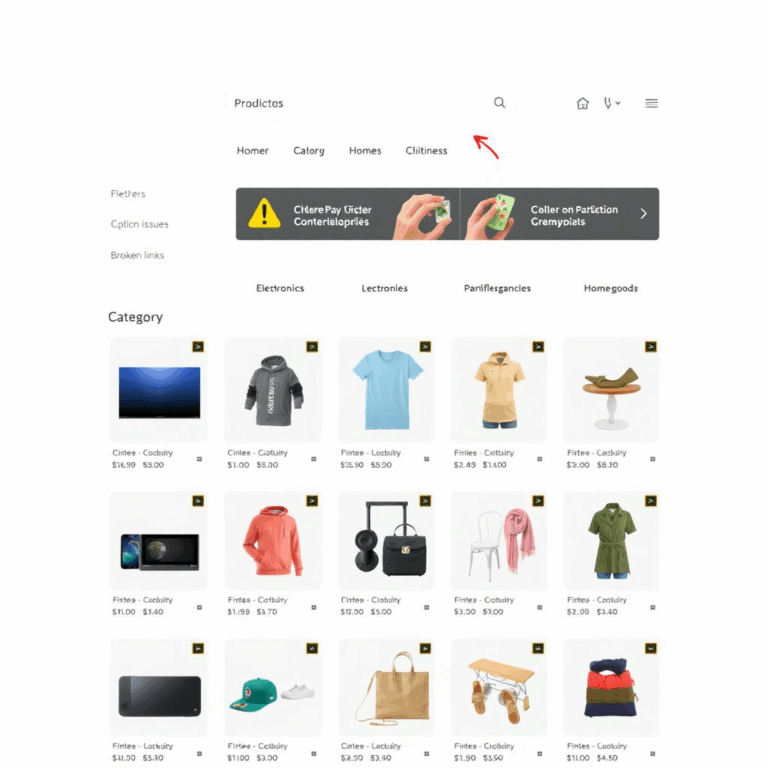Long-Tail Keyword Tactics That Actually Move Niche Blogs
When Google’s Keyword Planner Fails in Tiny Niches
Okay, let’s just get this out of the way: Google Keyword Planner straight-up lies in low-volume niches. If you’re running a microniche blog — like antique pocket watches or deep-dive Yugioh deck theory — you’re gonna see “0 searches” slapped on keywords you know people are typing. But Keyword Planner’s numbers are aggregates, rounded, and not at all granular under a certain threshold. So “0” doesn’t mean zero.
I spent two weeks blogging about vintage Roland synths, back when I got obsessed with the Juno-106, and saw no data for “Juno 106 chorus noise fix.” Yet that exact search got me email replies from readers who found the page in Google. Anecdotal, yes. But real.
The solution: use autocomplete like a feral creature. Open an incognito window, type in the exact phrases you’d use if you didn’t know the answer, and scrape suggestions. Then backtrack — remove some of the phrase from the front instead of the tail and see what fills in. It’s clunky, but it’s what Keyword Planner won’t show you: real-life phrasing.
Also: don’t rely solely on US data. Sometimes niche forums or communities are more active elsewhere, but AdWords won’t reflect it unless you switch regions or languages. I found more juice in Germany for my DX7 patches than anywhere domestic — no clue why, but the German traffic was loud and weirdly profitable.
Forget Volume: Exploit Modifier Stacks Instead
Long-tail isn’t just about adding sloppy adjectives. It’s layering search intent with behaviors. Once I learned to stack “free download”, “PDF guide”, “fixed for 2024” — traffic patterns began to change. The more task-oriented your keyword stack, the closer the reader is to acting (and honestly, clicking).
Example: “niche target market keyword strategy” got me barely any CTR. Changed it to “updated niche keyword strategy PDF 2024” and conversion jumped. Same page, same copy. Different entry layer.
You’re not just matching words; you’re matching the searcher’s next click. Think like you’re your own dumb SEO intern from three years ago. What’s the phrase you’d frantically Google at 2am trying to fix a busted AdSense setup because the dashboard did the fun disappearing act again?
Stacking Strategies That Accidentally Worked
- Add a year… then add another year in parentheses (some people search for “guide 2022 (updated 2024)” exactly like that)
- Include “vs alternative” phrasing even if you don’t have direct comparisons
- Use plural and misspelled variants in alt tags and image filenames, just enough to get picked without looking spammy
- Hijack affiliate-style queries like “is PRODUCT legit” with actual dev research and win both search trust + traffic
- Don’t ignore weird verbs people associate — stuff like “tweak,” “unblock,” “flatten,” all carry implied task types
Ahrefs and Semrush in Niche Cases: Mostly NOPE
I really wanted Ahrefs to be my long-tail savior. But the moment you move out of well-trafficked industries, the data falls way behind real-time trends. It’ll tell you a zero-volume keyword is irrelevant — right after Reddit explodes with the exact phrase. These tools are great if you’re selling software or insurance. In my Raspberry Pi-powered audio build niche? They’re borderline useless.
Semrush gave me “salted keywords” — like “best hidden HDMI pi monitor setup” — but then showed nonsense difficulty values. I swear half of what they estimate is built off backlink domains, not actual SERP intent. Also, once I figured that scraped question modifiers like “for under $20” don’t register unless someone has bid on them… yeah. Back to raw scraping.
I just track everything raw from Google Search Console now, add UTM tags aggressively, and parse query logs manually once a month. It’s messy, but at least I’m dealing with reality and not tool-aggregated performance theater.
The Reddit-Kitteh Method That Suddenly Worked
This one’s irrational, but go with me. I noticed several of my niche blog posts started getting upticks in search hits a week after I posted tangential comments in completely unrelated Reddit threads. One of the posts — about fixing latency issues in Linux audio routing — got a spike after I mentioned “bounce buffering gets weird with PipeWire” in a thread about gaming mice. What?
Turns out, Google partially indexes Reddit user profiles with link associations. So if your Reddit account has even one self-link or has been linked by others, your comments pull some contextual weight in structured snippets. Mix that with keywords shadowing real questions, and you get a faint relevance glow that shows up in obscure search phrases.
It’s like SEO backscatter.
“buffer underrun pipewire pulseaudio isn’t working fixed site:reddit.com”
That exact search pulled up my blog. I never posted that phrase. But I’d loosely woven related terms across a comment chain. Something in Google’s crawler said, yep — and included my footer link as context.
AdSense Clicks from 0-Vol Keywords That Still Paid
This cracked me up. A page I wrote about broken Google Fonts loading behavior in Firefox got a consistent $3 a day for months. For a keyword GKP said had zero search activity. All because it was the only useful result for someone (probably a chrome engineer? who knows) searching for “woff2 lazy load patch site:mozilla.org”.
That keyword unlocked tertiary ads — not on the page itself, but from advertisers bidding on browser debugging tools. So even though content was hyper-niche, the ads were ultra-targeted. That’s Google’s pattern-matching at play — not based on volume but how closely your page language mirrors advertiser interest models.
The page hardly got traffic, but every click was worth it. And because there were so few of them, Smart Bidding didn’t fire suppressors. It just let high-bid ads run wild on a nearly abandoned corner of the web.
Get to the Bottom of Weird Search Console Ghost Queries
You ever see query entries in GSC that look like "keyword" or have duplicated terms? Those are often ghost artifacts from Google autosuggestions — not typed by humans, but generated via predictive falloff models. They don’t behave like real queries. You can’t reverse engineer them. But they can hint at entry loops — clusters of queries that form during uncertain intent transitions.
I had one page that showed this:
Query: builder plugin 2024 - builder plugin 2024
Impressions: 3
Clicks: 2The exact repetition made me think someone typed it twice. But nope — turns out it was a fringe variant of suggestive looping, where a user clicks back and retypes from SERP. Google stores both.
Also: non-clicked queries with decent impressions sometimes exist because of Featured Snippet overflow — i.e., your content half-matches a snippet target. It’ll show as an impression, but you were never actually seen on the page above the fold. These don’t count for ranking strength. Just treats to waste your time chasing.
Niche Forums Still Power High-Converting Terms
I almost forgot this platform quirk: Google still puts weight on legacy forum signatures. Not just because of backlinks, but the context around repeated usernames across topic clusters. On an old audio-hardware forum (vBulletin, RIP), I added the link “my pi audio fix logs” in a sig circa 2016. That link still gets four or five hits a month — from pages that haven’t been updated since Obama was in office.
These legacy pages are low-change zones. So if you slip in a link, it stays static forever. Unlike Twitter or YouTube comments, which are chaos zones. Google treats unchanged page sections with stable text weight higher when evaluating anchor phrases. So even if you write a fresh article, just updating a signature on a 10-year old account can give you temporary lift on specific phrase matches.
Weird Stuff That Triggered Auto-Complete Shifts
This is a small thing, but I noticed once that embedding heavily structured HTML lists inside a blog post with H2 headings would result in Google recommending those contained terms in search dropdowns. Like:
<h2>Top Audio Interface Hacks</h2>
<ul>
<li>Disable pre-roll jitter buffering</li>
<li>Inject dummy roundtrip latency markers</li>
</ul>A few weeks later? People were searching those phrases exactly. Not huge numbers — but some. My theory is: Google will borrow well-structured list terms into the autosuggest pool if they match niche topic densities (i.e., not many pages use that phrasing). It’s like you can semi-incept autocomplete with predictable formatting.
A malfunctioning behavior I noticed though: if you put multiple lists under one heading, Google sometimes collapses them into one internal block and misregisters them in snippets. I had a cluster of “ul”s under a 2023 H2, and the SERP preview showed them under my 2020 guide instead. No idea why. But clearly not pulling the correct DOM container stack.














